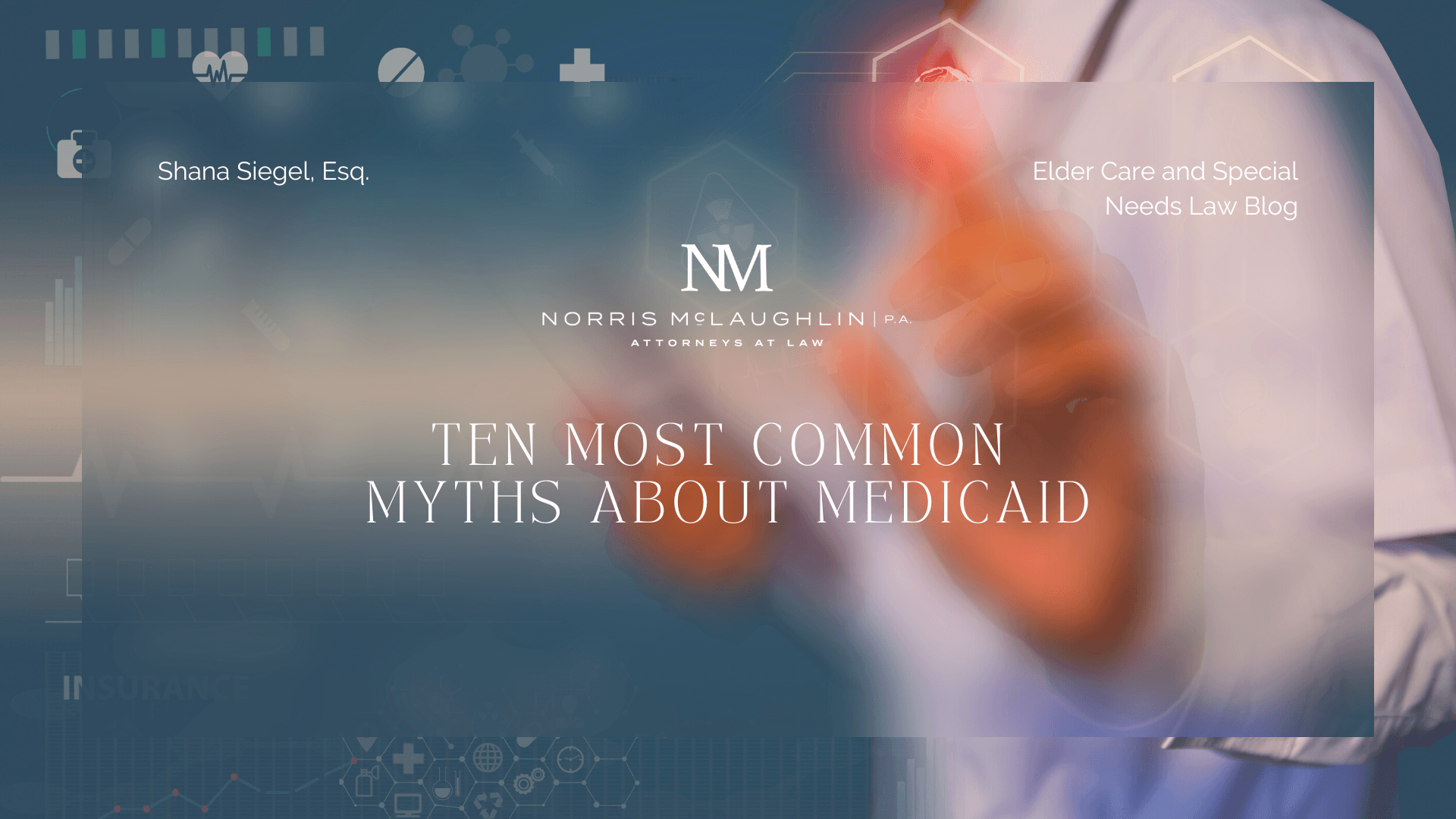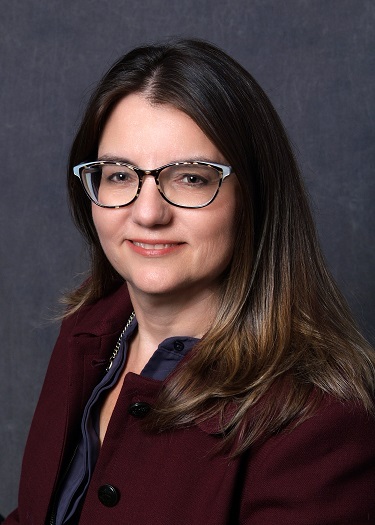Ten Most Common Myths about Medicaid

1 – I cannot give away anything and qualify for Medicaid.
This is a complicated area of the law and readers should consult with a knowledgeable elder law attorney before they transfer their assets. Although transfers between spouses are exempt, transfers to persons other than spouses usually subject the donor to penalties that result in periods of ineligibility for Medicaid. There are some exemptions to this rule.
2 – If I give my assets away, I will not be eligible for Medicaid for five years.
Medicaid will look back at gifts made within five years of application. When a person applies for Medicaid, the form asks if the person has made any transfers to other persons within the five years preceding the application. If a transfer has taken place during the lookback period, then a penalty may be imposed. With proper guidance from an experienced elder law attorney a strategy can be designed to protect assets even within the five-year period.
3 – I must spend all my money before I can receive Medicaid.
Individuals and married couples are permitted to own certain types of assets and still qualify for Medicaid. Examples of exempt resources include one vehicle, household furnishings, pre-paid funerals, and the family residence if the applicant or spouse is still living there. Besides these exempt assets, a single individual may keep $2,000 but a spouse may keep approximately $140,000. With proper planning spouses can protect more assets.
4 – I can only spend down my assets on medical or nursing home bills.
Individuals navigating Medicaid should seek advice from experienced elder law attorneys to spend any excess resources in ways that are beneficial to them and their families, and can provide a spouse remaining at home with a good quality of life.
5 – Once I am in a facility, it is too late to start Medicaid Planning.
In cases where planning was not done before the person entered a nursing home, assets may still be protected. With proper planning, under current law, it is often possible to save from 40% to 100% of the resident’s assets.
6 – My retirement assets are safe when my spouse gets Medicaid.
When a married person applies for Medicaid, the assets of both spouses are considered. Without proper planning, a spouse’s retirement assets are in jeopardy (in New Jersey but not in many neighbor states). However, there are strategies that can be implemented to ensure the spouse has funds to live a comfortable lifestyle.
7 – If my assets are owned by a living trust, they are protected from nursing homes.
Assets owned by a living trust are vulnerable to nursing homes costs and are counted when determining financial eligibility. However, other types of trusts may be used to protect assets.
8 – I can give away a certain amount of money per year under the Medicaid rules.
This is not a Medicaid rule, but a federal tax rule. The federal gift tax rule permits persons to give up to $17,000 per year per recipient (in 2023) without filing a federal gift tax return. If gifts are made that exceed this limit, a gift tax return must be filed, but normally gift taxes are not owed because of the lifetime gift tax credit. Gifts made as part of Medicaid planning may well exceed the annual threshold, so a gift tax return may have to be filed.
9 – All my income must be used for my spouse’s nursing home bill.
The treatment of a couple’s income by Medicaid is complicated. Unlike resources, the Medicaid rules of income follow the “name on the check” rule: that is, each spouse’s income is considered separate property. This means that the healthy spouse can retain all their own income. In some cases, the community spouse is also entitled to share in some or all the institutionalized spouse’s income.
10 – I can file by myself, or the facility will help me.
The Medicaid laws and regulations are complicated and subject to change. The filing of a Medicaid application is comparable to filing an income tax return that you know will be audited. Medicaid agencies have an incentive to deny applications quickly, so it is essential that the application be correct and complete. Collaborating with an experienced attorney is the best way to avoid costly mistakes. If you have any questions about this post or any related matters, please feel free to contact me at ssiegel@norris-law.com.




